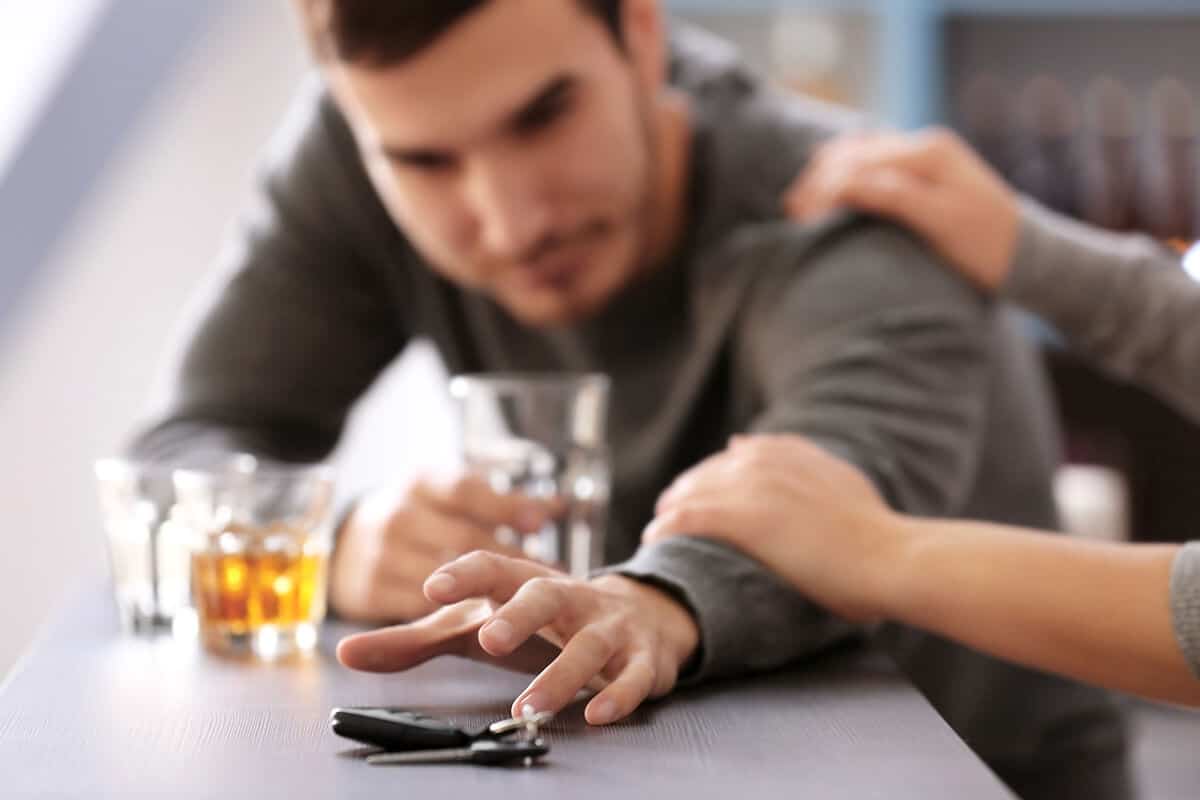Drunk driving is one of the leading causes of car accidents and traffic fatalities. Someone dies in a drunk driving accident in the United States every fifty minutes—totaling over 10,000 deaths yearly. What makes these fatalities even more regrettable is that drunk driving accidents, compared to accidents caused by weather or your car malfunctioning, are easily preventable.
If you ever find yourself involved in a drunk driving accident, it’s important to contact an experienced drunk driving accident attorney. Don’t hesitate to call Paul when you’re unsure where to turn. Here at the Paul Wilkinson Law Firm, we’re dedicated to defending the rights of anyone involved in personal injury cases, including car accidents, drunk driving accidents, and truck accidents.
Even if you believe you’re partially at fault, call us. Our team of lawyers will educate you on the specifics of your case, assess the situation, and determine whether or not your case is entitled to any form of legal compensation. Our experience and expertise in personal injury cases is unmatched.
We hope that you will never be involved in a drunk driving accident. We believe education is an important tool to reduce the number of these accidents. In this blog, we’re dissecting the key differences between buzzed driving and drunk driving and demonstrating how even a small amount of alcohol in your system can impair your ability to drive safely. We then review alternatives to driving under the influence that everyone should know. Even if you’ve only had one or two drinks, getting behind the wheel is never worth it.
Table of Contents
What is drunk driving?
Whenever someone operates a motor vehicle and their blood alcohol content (BAC) is above the legal limit, this is considered drunk driving. In every state in the US, the legal limit is 0.08 percent. For example, if your BAC is 0.10, your blood supply contains one part of alcohol for every 1,000 parts of blood.
Everyone processes alcohol differently, and your BAC depends on various factors. The number of drinks consumed, your body weight, enzyme production, and the amount of time in which the drinks were consumed all impact your BAC. Despite the myths that claim otherwise, there is no quick fix for sobering up. Simply chugging coffee or water won’t make an impact on your BAC. Your body needs time to process the alcohol naturally—no matter how many drinks you’ve had.
What is buzzed driving?
While most of us are familiar with the risks associated with drunk driving, it’s common for people to wonder: what is buzzed driving? Buzzed driving refers to any time that someone is operating their vehicle with a blood alcohol content (BAC) between 0.01 and 0.07 percent. Thus, while they may be below the legal BAC limit, they are still driving under the influence and may not be able to operate their vehicle safely.
Compared to drunk driving, buzzed driving is a bit more ambiguous in legal terms. Laws pertaining to buzzed driving differ from state to state and may have different ramifications. You can still receive a DUI for buzzed driving in many states if a police officer pulls you over.
Some of these buzzed driving charges can be pleaded to a lesser charge known as a “wet reckless” charge. In these cases, you’re pleading guilty to reckless driving instead of a DUI or DWAI, a lesser charge. However, in most cases, the individual will still be required to complete an alcohol education course.
What’s the difference between buzzed driving and drunk driving accidents?
Technically, the difference between buzzed and drunk driving is the driver’s blood alcohol content. While driving with a BAC of 0.01 to 0.07 is considered buzzed, a BAC of 0.08 crosses the threshold into drunk driving.
Additional differences lie within the legal repercussions. Each state has specific laws concerning drunk and buzzed driving, but drunk driving laws are more consistent overall. Generally, if you’re arrested while drunk driving, you’ll receive a DUI, which can come with heavy fines, loss of driving privileges, or even jail time. Buzzed drivers can still get a DUI, but these can sometimes be pleaded down to a “wet reckless” charge.
How does alcohol affect your ability to drive?
While—legally—buzzed driving is different than drunk driving, buzzed driving is still just as dangerous. Any amount of alcohol in your system can impair your ability to see the road, make quick decisions, and safely operate your vehicle. The National Highway Traffic Safety Administration (NHTSA) created a chart that details the predictable effects on your driving as your BAC increases. Here’s a glance at these effects:
- 0.02 BAC – Reduced visual functioning and ability to multitask.
- 0.05 BAC – Difficulty steering and reduced ability to concentrate on the road and track other moving objects.
- 0.08 BAC – Difficulty controlling speed, processing visual information, and reduced concentration and short-term memory.
- 0.10 BAC – Impaired ability to brake and maintain lane control.
- 0.15 BAC – Impaired ability to process auditory and visual information and control your vehicle.
As you can see, any amount of alcohol in your system impacts your ability to safely and effectively operate your vehicle. It’s never worth it to get behind the wheel when you’ve been drinking—even if it’s just a few and you think you feel fine. In many cases, it takes time to feel the full effects of alcohol, which means that you could become even more impaired while driving.
Alternatives to drunk or buzzed driving.
There are many different alternatives to operating your vehicle while under the influence of alcohol. Even if you’ve just had a few, it isn’t worth the risk. Here are a few options for getting home safely if you’ve been out drinking:
- Designate a sober driver before going out.
- Ride-sharing services (Uber and Lyft).
- Call a taxi.
- Ask the host if you can stay or if they know any sober drivers.
- Get a hotel room (this may seem costly at the time, but it’s still much cheaper than the fines associated with a DUI).
Conclusion – Buzzed vs. Drunk Driving Accidents
In the eyes of the law, buzzed driving and drunk driving may be different, but they still lead to the same result. No matter the number of drinks, alcohol still impairs your ability to control your vehicle, slows your reaction time, and makes it harder for you to respond to changing road conditions. If found guilty of buzzed or drunk driving, a driver may face heavy fines, loss of their license, or even jail time. It’s never worth the risk of driving under the influence.
However, if you find yourself involved in a buzzed driving or drunk driving accident, you should reach out to an experienced car injury attorney in Denver. Following a car accident, the last thing you should be worrying about is paying for medical bills, recovering wages, or the long process of fighting your case in court. We operate on contingency fees, which means that we only get paid if you win your case.
Contact us at the Paul Wilkinson Law Firm today to schedule a free consultation. With a simple phone call to 303-333-7285, we’ll assess your case, help you understand your legal options, and get you started on the road to recovery from your buzzed or drunk driving accident.
The Paul Wilkinson Law Firm is a team of personal injury attorneys in Denver, CO serving victims of car, truck and motorcycle accidents. Each of our lawyers is licensed with the Colorado State Bar (CBA) and specialize in injury law.
We've recovered tens of millions of dollars in personal injury settlements and verdicts for our clients. For 13+ years we've helped thousands of people get back on their feet after experiencing serious injuries. We will take your case to trial and get the maximum settlement possible.



